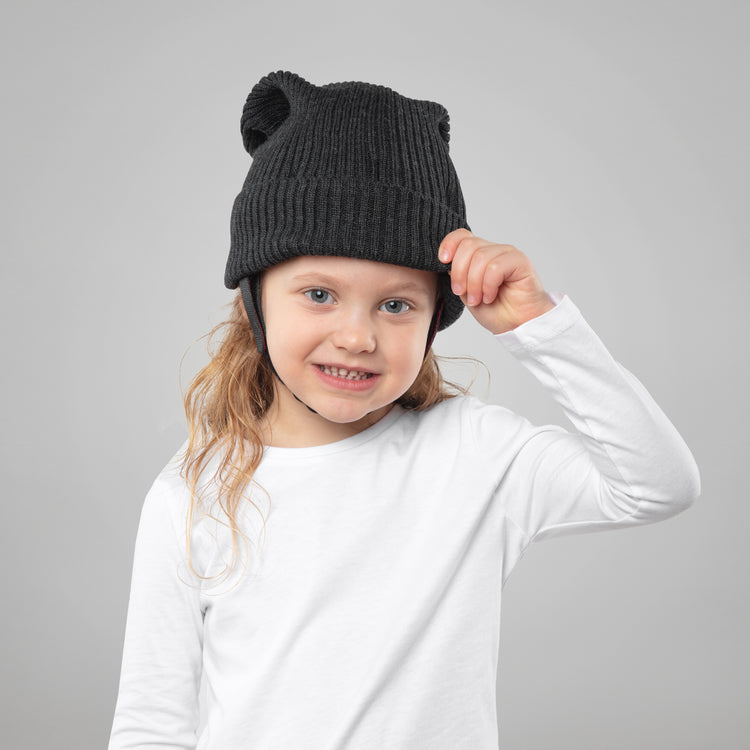Explore our Q&A on special needs helmets for infants and children in the latest blog post. Gain expert insight into the benefits, design features and safety considerations of these helmets designed to meet the unique needs of young children.
It's natural to worry about your child and their risk of an injurious fall. There are many reasons why a child may often fall, such as regular seizure activity, TBI (traumatic brain injury) and headbanging. Each of these conditions may result in the child suddenly dropping to the floor, and without head protection, the fall could result in a severe head injury.
The fear that they could hurt themselves in the future is most certainly a daunting feeling. The question 'does my child need a helmet?' is frequently asked, and so, to help you to understand the uses of a helmet from wearability, styles, comfort, and durability we have laid out a simple Q&A to help guide you to the answer you are looking for.
What is a Special Needs Helmet?
A Special needs helmet, also known as an epilepsy helmet, autism helmet, medical helmet and protective helmet, sole priority is to provide complete head protection from an injurious fall. Some come with face guards, whereas others come with additional neck padding. Some are designed for sleep while other bulkier helmets are designed for hard falls.
When is a Helmet Needed?
All helmets are designed to absorb the shock when a fall occurs, reducing facial and/or brain injuries. Should a toddler or child have a condition that results in frequent and unpredicted falls, a healthcare professional may suggest that you purchase a helmet to enable your child to live a better quality of life by minimizing fears of falling. Not only does it protect your child from an injurious fall, but it can also reduce your worries as you won't feel on edge every time you turn around.
What Are The Benefits of Wearing a Helmet?
- - Many children from around the world are dealing with around the clock care to prevent injuries from a fall which is not only frustrating for them as their independency is, but it is also the parents or carer on duty that feel emotionally drained from the continuous worry.
- - While a helmet reduces stress and worry, it can also have a positive effect on your child's confidence. You see, when they understand that the helmet protects their head and mummy doesn't always have that concerned look on her face, the child can relax and start to enjoy days in the park or afternoons in a play area.
- - Fortunately, we live in 2020 (where we admit we all haven't had the greatest of years). This means those old bulky stigmatizing helmets are a thing of the past with today's' medical helmets are highly fashionable and look more like regular hats.
What Is The Age Range For Medical Helmets?
All ages are capable of fitting into a medical helmet. Even babies and toddlers can have specially designed helmets. Once they reach the age of four years old, they can wear a hardier helmet well into their teens and should they require an adults helmet; one can be purchased from the age of 16.
Does a Medical Helmet Need to be Worn All The Time?
In short, no, it does not. However, if your child suffers from conditions that cause them to drop to the floor without warning suddenly, then it may be recommended by your doctor that they wear their helmet both day and night. In most cases, your child will require it to be worn when they are most susceptible to falling. For example, if your home is fall proofed, then they may only need their helmet for school or outings. A general rule of thumb is to speak to your medical professional who will give you an infinite answer.
Choosing a Medical Helmet With Ribcap
We believe medical helmets provide confidence to both parent and child while offering complete protection to ensure your child is safe every day. We don't believe that your medical helmet should be big, bulky and uncomfortable to do its job.
Ribcap Medical Helmets - When Fashion Meets Protection
Over the past 10 years, Ribcap's have prided themselves in creating premium quality helmets that are non-stigmatizing and highly fashionable to match everyone's style, along with pure comfort and breathability for all-day wear.

Finally, an all in one helmet that looks great feels great and is equally a medical helmet that has been vigorously tested by the International Rugby Impact Standards and are trusted by several neuro associations.
Ribcap's Protective Beanie Hat Features
- - Made using only premium quality materials
- - Are highly fashionable.
- - Our unique soft foam is high shock-absorbing while feeling light and airy.
- - Provide 360 protection without being bulky or stigmatizing
- - They are lightweight, breathable, flexible and discrete for all-day comfort.
- - It's 100% washable, foldable and storable.
- - Did we mention that they are a great addition to any look!
Want to take a look at our colour and style options? Check them out here.



